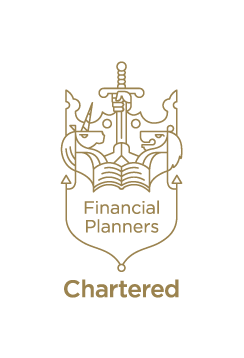We've provided our summary of the ten key announcements that could impact on your personal financial plans, both positively and negatively.
1. The tax-free personal allowance set to increase in April 2017 to £11,000
The tax-free personal allowance ? the amount of income people can receive before they have to start paying tax ? will rise to £10,800 in 2016/17 and £11,000 the year after.
The increases to the personal allowance from £6,475 in 2010 to £11,000 in 2017/18 will save a typical taxpayer £905.
To make sure the full benefits of the personal allowance increase are passed on to higher-rate taxpayers, the Government is also increasing above inflation the point at which higher earners start paying 40% tax. It will increase by £315 in 2016/17 and by £600 in 2017/18 ? taking it to £43,300 in 2017/18.
2. New Personal Savings Allowance will take 95% of taxpayers out of savings
tax altogether
From April 2016, a tax-free allowance of £1,000 (or £500 for higher-rate taxpayers) will be introduced for the interest that people earn on savings.
If you are a basic-rate taxpayer and have a total income of up to £42,700 a year, you will be eligible for the £1,000 tax-free savings allowance.
If you are a higher-rate taxpayer and earn from £42,701 to £150,000, you'll be eligible for a £500 tax-free savings allowance.
3. Introducing the Help to Buy ISA ? for every £200 that people save towards their first home, the Government will put in an extra £50, up to a maximum bonus of £3,000
Following the introduction of Help to Buy, which allows people to purchase a home with just a 5% deposit, the Government will help first-time buyers save for a deposit with the introduction of the Help to Buy Individual Savings Account (ISA).
People will be able to open an ISA and save up to £200 a month towards their first home, and the Government will add a further 25%. That equates to a £50 bonus for every £200 people save, up to a maximum of £3,000.
Help to Buy ISAs will only be available to individuals who are 16 and over and will be limited to one per person. If appropriate, consider buying together to receive a bonus each.
4. People will have complete freedom to take money out of a Cash ISA and put it back in later in the year
Savers will have the flexibility to be able to take money out of their Cash ISA and put it back in the same financial year without it counting towards the annual tax-efficient ISA allowance.
Currently, the ISA allowance is £15,240 (2015/16), and once you've deposited that amount, you can't put any more in during the same tax year, even if you make a withdrawal.
The changes, which will come into effect from autumn 2015, will mean that savers who need access to their ISA savings are not penalised if they then want to save more later on that tax year.
The only limit is that you need to top up your Cash ISA during the same financial year the withdrawal was made ? if you don't, it will count towards your new tax-efficient ISA allowance.
5. Additional funding to support the new pension freedoms and the new pensions guidance service
The Budget document stated: 'Additional funding of £19.5m in 2015/16 will be provided to support the new pensions freedom and the new pensions guidance service, Pension Wise. This funding will extend the availability of State Pension statement and pension tracing services.'
6. Pensioners will be
given the freedom to sell their annuity for a cash lump sum
Under proposals from April 2016, pensioners who already have an annuity will now be able to effectively sell it on, so that they too can benefit from the pensions freedom announced in Budget 2014.
Currently, people who bought an annuity are unable to sell it without having to pay at least 55% tax on it. From April 2016, it is proposed that the tax rules will change so that people who already have income from an annuity can sell that when they choose and will pay their usual rate of tax they pay on income, instead of 55%.
7. Pensions lifetime allowance reduction
The lifetime pensions allowance, the maximum amount a person can hold within all of their pensions without suffering a tax charge, will be reduced in April 2016 from £1.25m to £1m ? this is estimated to affect less than 4% of people.
Pensioners pay a 55% or 25% tax charge on any amount over the lifetime allowance when they withdraw money or buy an annuity, rather than their usual tax rate.
8. Review into the avoidance of inheritance tax
The Government is to review the ways in which inheritance tax (IHT) is avoided through deeds of variation. A deed of variation is used to rearrange Wills, and the most common rearrangements are disclaimers and written variations. The report resulting from the IHT review will be published in the autumn.
9. Further changes
to Venture Capital
Trusts and Enterprise Investment Schemes
Plans were announced to further alter the rules around Venture Capital Trusts (VCT) and Enterprise Investment Schemes (EIS). Mr Osborne said he was making the changes on the plans, which invest in small, private up-and-coming companies, to 'ensure they are compliant with the latest state aid rules and increasing support to high-growth companies.'
10. Annual tax
return abolished
Millions of individuals will have the information HM Revenue & Customs requires automatically uploaded into a new online digital tax account by 2020.


